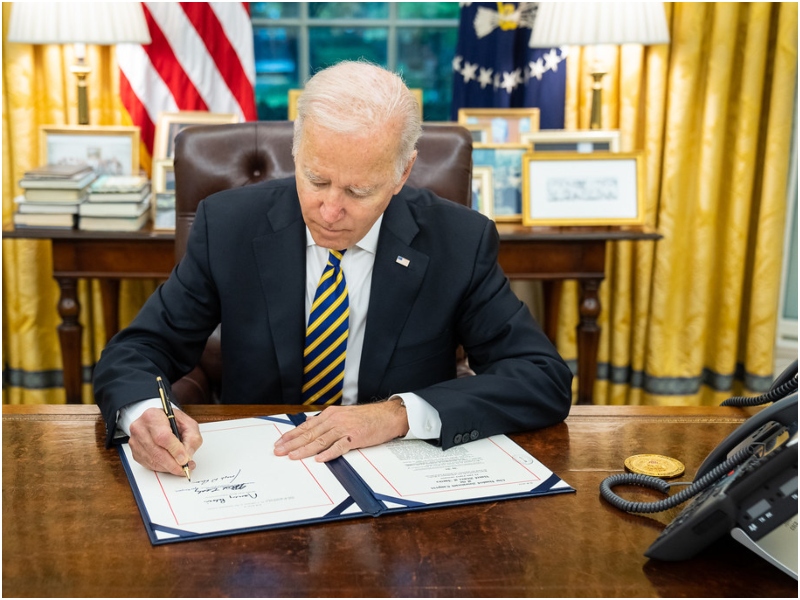In the two years since President Joe Biden signed the Bipartisan Safer Communities Act into law, over 500 individuals, some linked to transnational cartels and organized crime, have faced federal charges for gun trafficking and other crimes.
A White House report, obtained by the Associated Press, details the impact of the legislation and its broader implementation across the country.
The report highlights that enhanced background checks have prevented approximately 800 firearm sales to individuals under 21 who are prohibited from purchasing them. It also notes that 14 states are leveraging funds from the legislation to better implement red flag laws, allowing law enforcement to remove firearms from individuals in crisis. Additionally, $85 million has been allocated to 125 school districts in 18 states to support mental health care for students.
Biden celebrated the law’s achievements, stating, “It was designed to reduce gun violence and save lives. And I’m so proud of the tremendous progress we’ve made since then.” Despite the progress, Biden continues to push for more stringent gun control measures, including stricter background checks and an assault weapons ban.
The law, a significant accomplishment for the Biden administration, comes as Biden campaigns for reelection. Contrastingly, Donald Trump, the Republican presumptive presidential nominee, has promised to halt any new gun regulations if he returns to office. Trump, endorsed by the NRA, has criticized Biden’s record on gun control and has formed a Gun Owners for Trump coalition to rally support from gun rights activists and industry professionals.
In addition to legislative measures, Biden has established the first-ever White House Office of Gun Violence Prevention and issued new rules requiring more firearms dealers to conduct background checks, including at gun shows. His campaign sees gun control as a critical issue, especially among suburban college-educated women, a key demographic in upcoming elections.
Violent crime rates saw a decline in 2023, but firearms remain the leading cause of death for children in the U.S., according to the American Academy of Pediatrics. This year alone, 110 children under 11 and 566 teenagers between 12 and 17 have died due to gun violence. Research from Pew indicates a 50% increase in gun-related deaths among children and teenagers between 2019 and 2021.
Despite efforts to implement gun control, legal challenges persist. The conservative-majority U.S. Supreme Court has recently expanded gun rights, striking down a ban on bump stocks and reevaluating how courts assess firearm restrictions. However, the Court upheld a law protecting domestic violence victims, a ruling significant for its implications on other gun ownership laws, including those affecting Hunter Biden, who faces charges related to firearm purchases.
The Bipartisan Safer Communities Act, signed on June 25, 2022, emerged from a bipartisan effort following several mass shootings, including the tragic event at a Texas elementary school. Gun safety advocates commend the law and Biden’s dedication to the cause. “We are determined to build on this momentum and urge Congress to continue prioritizing gun safety laws to keep our communities safe,” said Angela Ferrell-Zabala of Moms Demand Action.
Federal cases under the new law have led to significant sentences, including 23 years for gun trafficking in gang-related shootings and two years for running an illegal gun trafficking operation. Additionally, in March, five men in Texas were charged with trafficking military-grade weapons to a Mexican drug cartel.
The Biden administration has also allocated $250 million to nearly 80 organizations to expand community violence intervention initiatives nationwide, underscoring its commitment to reducing gun violence and enhancing public safety.

